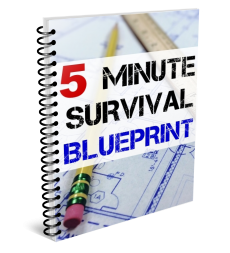Why You Should Consider a Water Purification System For Your Wilderness Survival Gear
Water is needed on a daily basis. Our bodies are of 60 to 70 percent water. Staying properly hydrated is a major issue when in a wilderness survival situation or in urban survival situation. Although you will find numerous water source in a rural area (if you are living in a desert or semi-arid desert) such as lakes and streams, how sure can you be the water is safe to drink? The water may look clean, but your eyes cannot see the bacteria or viruses that could be contained in it. So including a water filtration/purification system in your wilderness survival kit would be a good idea.Another thing to consider is the amount of water we need to drink throughout the day to stay properly hydrated. The amount of water that we need to take in depends on a number of factors such as air temperature, humidity, altitude and the amount of physical activity we are putting our bodies through. This also varies according to ones weight and physical health. For the average man walking in the mountains this could be up to 4 liters. A supply of water to stay properly hydrated for four days would weight about 35 lbs. Are you going to want to carry that around all day long. Not likely. With this in mind you would want to include in your wilderness survival gear one of the many water filtering systems (remember four days of water would 35 lbs for a man) available in any high tech outdoor equipment store.
There are a number of types of water filtration and purification systems you can purchase to be included in your wilderness survival gear or bug out bag (if you are in an urban survival situation you may need to escape to a wilderness area).
Types of Water Treatment Systems
- Pump Filters — these systems clean the water by pumping it through a filter, they don't kill any of the bacteria.
- Gravity-fed filters — cleanse water by using gravity to push it through a filter.
- Drops and Tablets — purify water by treating it with a chemical.
- UV Light — water is purified by treating it with ultraviolet light.
Criteria For Choosing a Water Filtration and/or Purification System
1. Reliability/Effectiveness - Effectiveness determines what the treatment system actually eliminates. Reliability is how heavily you can rely on the system you are carrying, and if you are likely to need a backup system.2. Weight - This becomes a concern if you are forced to walk long distances. If you are putting together an urban survival kit this won't be such a concern as you will likely be staying put until emergency help arrives.
3. Ease of Use - this is determined how fast you can learn to use the system, without a guide to follow. You also need to be concerned about the number of steps required to make the water drinkable and the time it takes to reach that point. Maintenance is also an issue. Of course if you adding chemicals to purify the water the procedure will be quit simple. The only thing to consider is time.
4. Durability and Number of Uses Before Maintenance
Please VISIT THIS WEBSITE to find about how you be prepared for a disaster situation in just one month only taking five minutes a day.
Here is an opportunity to grab an unique survival program specially designed to keep you and your family in a situation where you can survive all kinds of disaster situations until rescue teams arrive with water, food and shelter. These situations occur all the time even the most technically advance societies. Just think of the tornadoes that occur every year in the United States and the Hurricanes and typhoons that occur in nations prone to extreme weather situations.
You can start this program today. The FIVE MINUTE SURVIVAL GUIDE will be delivered to you on daily basis through your email. This guide is great because:
1. Fast to accomplish (most actions can be completed in five minutes or less)
2. Easy to follow (You will be show precisely what to do step-by-step)
3. Inexpensive (The author will share with you dozens of ways to get prepared, many
of which won't cost anything.
Best Regards


No comments:
Post a Comment